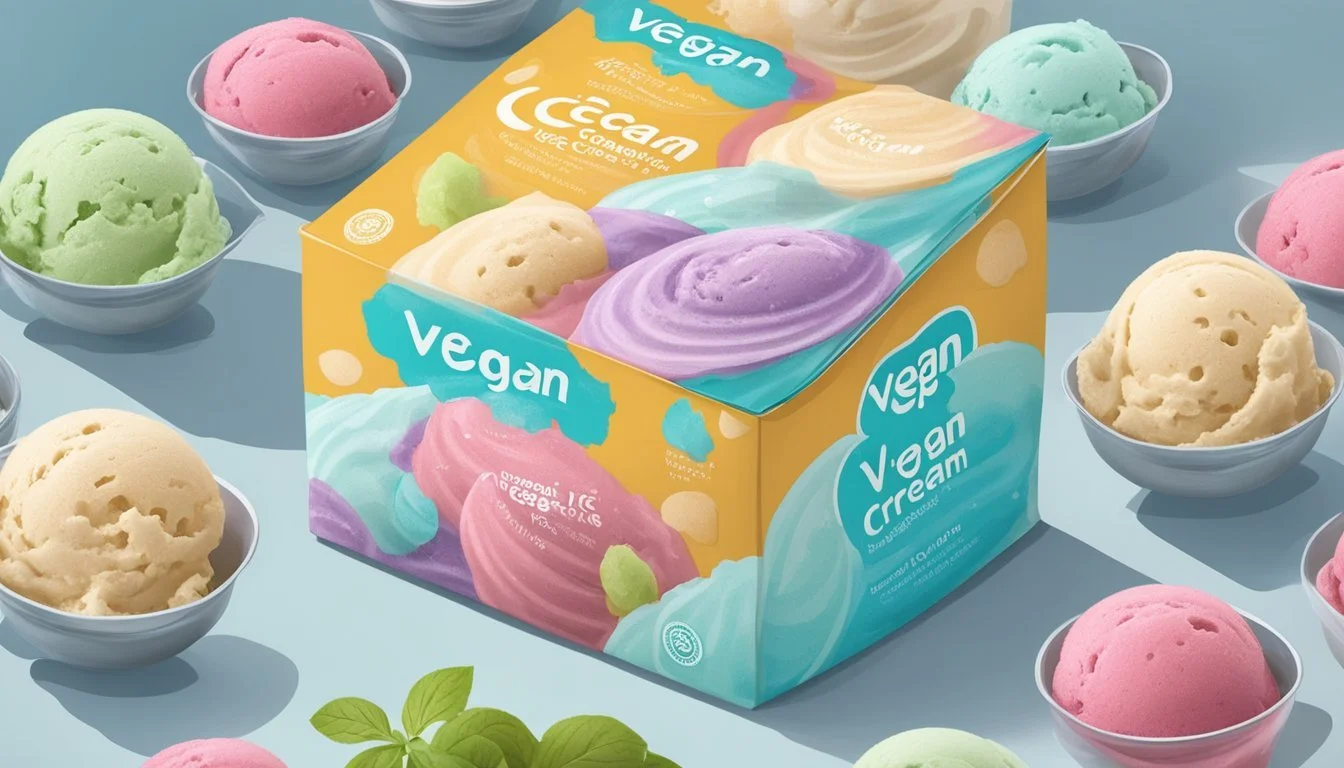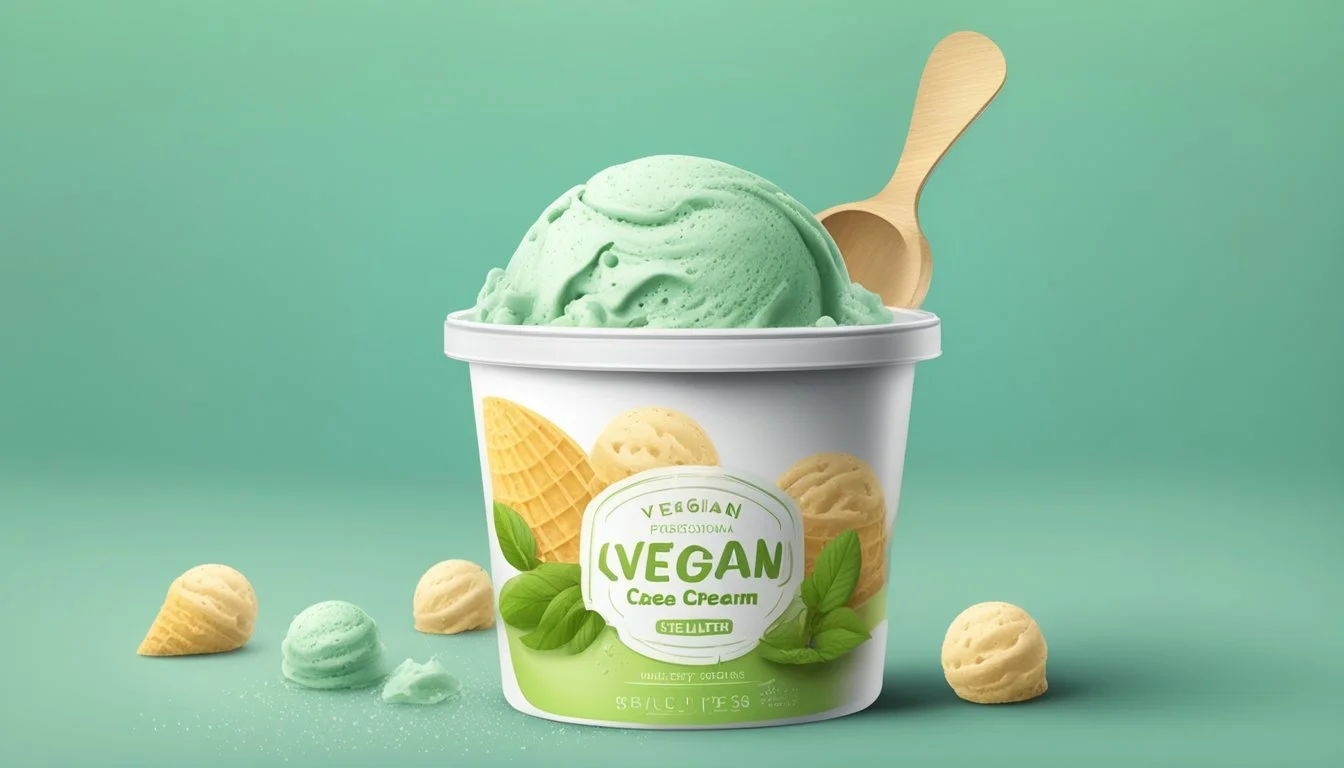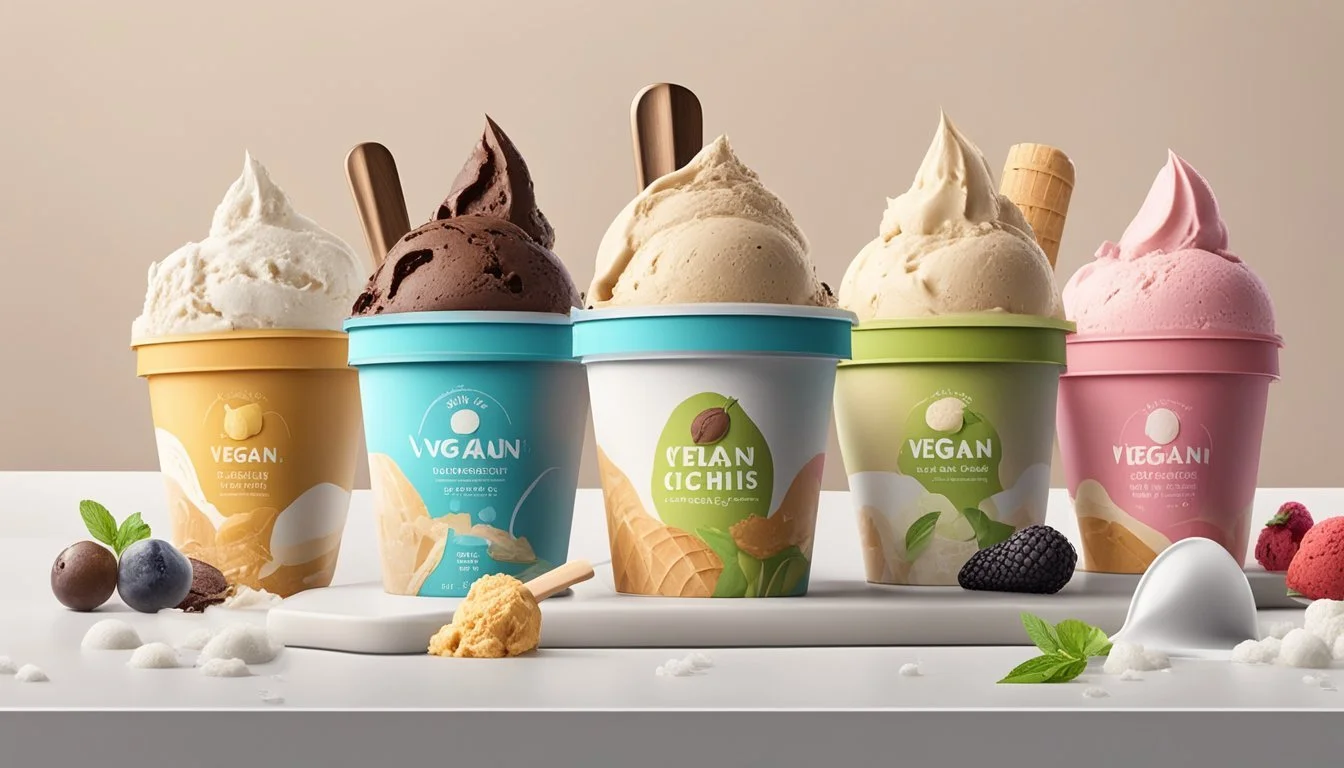Does Vegan Ice Cream Go Bad?
Understanding Shelf Life and Storage
Vegan ice cream, much like its dairy counterpart, has a shelf life and can go bad if not stored properly. Plant-based and non-dairy ice creams typically last for about 2-3 months in a freezer that's kept at a consistent temperature. Factors such as the presence of preservatives and stabilizers can affect their longevity, but ice cream that's been improperly stored can develop ice crystals and a change in texture.
It's important to check for signs that the vegan ice cream has spoiled. If the ice cream has an off smell, an unusual taste, or a significant change in texture, it's best to discard it. Even though plant-based ingredients like cashew milk, almond milk, and coconut cream are different from dairy, they are still susceptible to spoilage.
To maximize the shelf life of non-dairy ice cream, it should be kept in an airtight container to prevent exposure to air, which can cause freezer burn. Proper handling and storage are key to ensuring that you can enjoy your plant-based treats for as long as possible.
Understanding Vegan Ice Cream
Vegan ice cream is a popular alternative to traditional dairy ice cream, with a variety of bases and flavors that cater to diverse dietary needs and preferences. It promises a different experience in composition, health impact, and environmental footprint.
Composition and Varieties
Vegan ice cream utilizes plant-based ingredients instead of dairy milk. Common bases include nut milk (such as almond and cashew milk), coconut milk, soy milk, and oat milk. Each type lends unique properties to the final product—coconut milk provides a creamy texture, while almond milk adds a subtle nutty flavor.
Various brands now use these bases to create a wide array of flavors. Some intriguing options include avocado and sunflower seeds. This variety ensures there is something for everyone—from those seeking classic vanilla to those adventurous enough to try exotic tropical combinations.
Health Considerations
Vegan ice cream can offer several health benefits compared to its dairy counterpart. It is typically free from lactose, making it suitable for those who are lactose intolerant. Moreover, plant-based options usually contain lower levels of saturated fat, reducing cholesterol intake. This is beneficial for heart health.
However, sugar content varies among brands and flavors. Some brands may include as much as 6-7 teaspoons of sugar per serving, so it's essential to check the nutritional information. Additionally, while vegan ice cream can be lower in calories and fats, it's not always the case. Factors such as added fiber and protein also play a role in its health profile.
Environmental Impact
The production of vegan ice cream generally has a lower environmental impact than its dairy-based counterpart. Traditional dairy farming involves higher greenhouse gas emissions and significant resource use. By opting for plant-based milks like nut milk, soy milk, or oat milk, consumers can help reduce the overall carbon footprint of their diet.
Plant-based diets contribute to less water and land usage, and they help lower emissions tied to the dairy industry. Furthermore, advancements in precision fermentation are paving the way for even more sustainable and ethical production methods, promising a future where indulgence doesn't come at the planet's expense.
Storage Fundamentals
Storing vegan ice cream correctly can significantly extend its shelf life and maintain its quality. Key considerations include maintaining optimal freezing conditions and avoiding common storage mistakes that lead to freezer burn and spoilage.
Optimal Freezing Conditions
To ensure vegan ice cream remains safe and delicious, freezer temperature should be consistently maintained at 0°F (-18°C) or lower. This halts the growth of bacteria and preserves the texture. For best results, store the ice cream in an airtight container to prevent exposure to air, which can cause ice crystals to form. Placing the container at the back of the freezer where the temperature is most stable can further enhance its longevity. Always check the expiration date or best-by date to gauge how long your ice cream will last.
Common Storage Mistakes
Freezer burn is one of the biggest threats to the quality of vegan ice cream. This occurs when ice crystals form due to fluctuating temperatures, usually when the freezer door is opened frequently. To prevent this, ensure the ice cream is tightly sealed in an airtight container to minimize air exposure. Avoid storing the ice cream in the freezer door as this area experiences the most temperature variation. Additionally, once you serve the ice cream, return it to the freezer promptly. Allowing it to melt before refreezing can degrade its texture and flavor.
Signs of Spoilage
Recognizing the signs that vegan ice cream has gone bad is crucial to ensure it is safe to eat. Specific indicators include changes in appearance and texture.
Visual and Textural Clues
Mold and Discoloration:
Visual signs such as mold or unusual colors are strong indications of spoilage. Mold may appear as green, white, or black spots on the surface. Any color changes that do not align with the original flavor can suggest that the ice cream is no longer good to consume.
Ice Crystals and Melting:
Large ice crystals on the surface or throughout the ice cream signify that it has been exposed to fluctuating temperatures, which affects its quality. If the ice cream repeatedly melts and refreezes, this can lead to a grainy texture and compromise its safety and taste.
Texture Changes:
Vegan ice cream should be smooth and creamy. Texture changes such as becoming excessively icy, grainy, or mushy indicate spoilage. These changes mean the ice cream has likely been stored for too long or improperly, making it less enjoyable and potentially unsafe to eat.
Vegan Ice Cream Brands
Various vegan ice cream brands offer delicious options made from plant-based ingredients such as almond and coconut milk. In addition, there are several homemade alternatives that can be easily prepared using simple recipes.
Popular Brands and Products
So Delicious: Known for its wide range of plant-based ice creams, So Delicious offers flavors like Chocolate Drizzled Bananas Foster made from coconut milk.
Cosmic Bliss: This brand provides creamy, indulgent ice creams with a variety of flavors. Popular choices include Sea Salt Caramel and Peanut Butter Chocolate.
Nadamoo: Nadamoo's offerings include organic, non-dairy ice creams made with coconut milk. Their flavors range from Vanilla Bean to Birthday Cake Cookie Dough.
Jeni’s Splendid Ice Creams: Although Jeni’s is famous for dairy ice cream, they offer vegan options crafted from coconut cream and other plant-based ingredients.
Van Leeuwen: Specializing in unique and rich plant-based flavors, Van Leeuwen's vegan ice creams include favorites like Vegan Peanut Butter Brownie and Honeycomb.
Halo Top: Known for low-calorie options, Halo Top offers vegan flavors made with coconut milk such as Peanut Butter Cup and Chocolate.
Brave Robot: Brave Robot uses animal-free dairy made through microflora fermentation to create flavors like Raspberry White Truffle and Hazelnut Chocolate Chunk.
Coolhaus: Aiming for a unique twist, Coolhaus serves vegan ice creams made with a focus on artisanal and creative flavors.
Homemade Alternatives
Banana-Based Ice Cream: A simple recipe involves slicing bananas, freezing them, and blending with plant-based milk until creamy. Add-ins like chocolate chips or fruit can make it more exciting.
Almond and Coconut Milk Recipes: Homemade recipes using almond milk or coconut milk offer versatile bases for various flavors. Sweeteners and mix-ins can be adjusted to taste.
Use of Ice Cream Makers: For a smoother texture, an ice cream maker can be used. Mix ingredients like avocados or sunflower seeds with plant-based milk to create unique homemade ice cream.
Step-by-Step Guides: Many recipes provide step-by-step instructions for easy preparation. Options include blending ingredients, freezing, and serving as a soft-serve or a harder, solid treat after additional freezing time.
Innovations in Non-Dairy Ice Cream
Recent advancements have paved the way for more diverse and delicious vegan ice creams. This section covers emerging ingredients and trends, as well as what the future holds for these innovative treats.
Emerging Trends and Ingredients
The rise of precision fermentation is one notable trend. This technology allows for the creation of dairy-identical proteins without using animals, enhancing the creaminess and texture of vegan ice creams. Major brands like Ben & Jerry's and Oatly are exploring this method.
Another trend involves unconventional bases such as avocado and sweet potatoes, which provide a rich and creamy texture. Brands like Sunscoop use these unique ingredients to create flavorful options.
Sweeteners like erythritol and stevia are increasingly used as low-calorie alternatives to sugar. They help in maintaining the desired sweetness without adding extra calories, catering to health-conscious consumers.
The Future of Vegan Ice Cream
The future looks promising with constant innovations in ingredient sourcing and processing techniques. Precision fermentation will likely become more mainstream, scaling up to meet consumer demand. This could lead to a wider range of flavors and textures that closely match traditional dairy ice creams.
Vegan ice creams are also expected to continue diversifying. Options such as alcohol-infused non-dairy ice creams may gain popularity, offering unique taste experiences. Brands like Van Leeuwen and Jeni's are continuously pushing the boundaries with new and exotic flavors.
Emerging market players such as Planet Oat and niche brands are setting higher standards, prompting established brands to innovate further. The development of nice cream, made primarily from bananas, and other fruit-based alternatives may also offer healthier choices.
These advancements ensure that vegan ice cream will remain a dynamic and evolving market, appealing to both health-conscious and environmentally-aware consumers.







